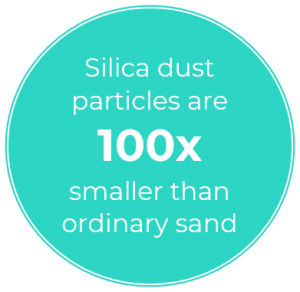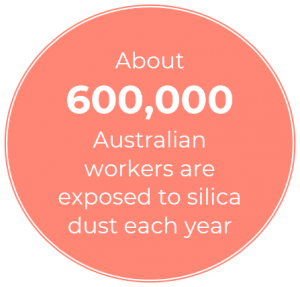Silica Dust in the Workplace
29th September 2020
by Midland Insurance
Key takeaways…
1. Silica is a natural mineral found in some stone, rock, sand, brick, tiles, concrete, gravel and clay. Exposure is caused by breaking, crushing or milling this type of material.
2. Silicosis occurs when crystalline silica dust scars the lungs. It’s a serious and incurable disease, with symptoms including shortness of breath, coughing, fatigue and weight loss.
3. The occupations with the greatest exposure include: miners, stonemasons, construction workers, farmers and engineers.
4. Wearing respiratory protective equipment and/or local exhaust ventilation or wetting dust can reduce silica dust levels by 99%.
What is silica dust?
Crystalline silica is a natural mineral found in construction materials such as concrete, bricks, tiles, mortar and engineered stone. When these materials are worked on, silica dust is released. As its particles are 100 times smaller than ordinary sand, it poses a significant health hazard and could rival the impact of asbestos in the years to come.

Tasks and exposure
Approximately 600,000 Australian workers are exposed to silica dust in the workplace each year, and it’s been estimated that more than 10% of these will develop a form of lung cancer over the course of their life as a result of that exposure.

Examples of work activities that can generate silica dust:
Health Risks
Silica dust can be harmful when it’s inhaled into your lungs over a long period of time at low to moderate levels, or short periods at high levels. Exposure can lead to serious diseases, including:
Exposure Control
The good news is that there are some straightforward ways to protect you and your employees;
More information about silica dust visit Safe Work Australia & Cancer Council Australia
Comments posted to this page are moderated for suitability. Once your comment has been checked it will be uploaded to the site.